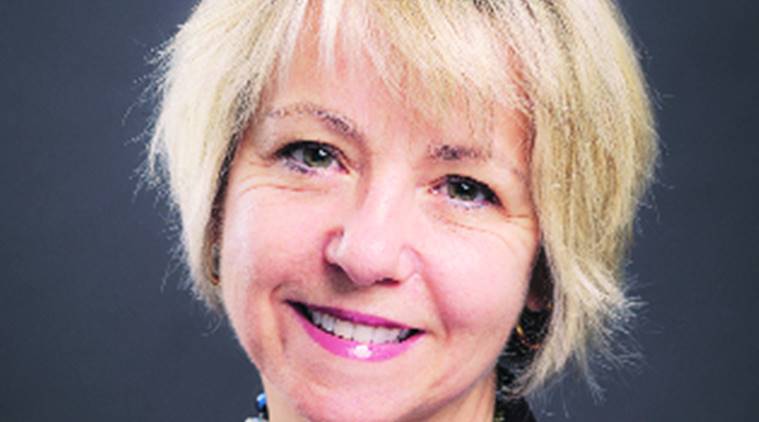 Dr Bonnie Henry
Dr Bonnie Henry
From a female fleet medical officer tending to 1,000 men at sea, to an epidemiologist setting up quarantines for families exposed to Ebola in Uganda, to the operational leader of Toronto’s response to the lethal SARS outbreak, Canadian physician Dr Bonnie Henry is the first woman provincial health officer for British Columbia who has kept the coronavirus disease in check and earned praise for reducing the impact of the virus. With a new version of her book, ‘Soap and Water & Common Sense’, released in India, Dr Henry told The Indian Express that as countries open up, the challenge is to keep our gatherings small, be kind to each other and stay calm.
What are the experiences that can be learnt from your management at British Columbia?
This has truly been a global crisis. It is only by recognising that we are all in different boats, but in the same storm, that we can find our ways through it. The challenges in different countries, and even different areas of the same country, can be so varied and difficult. India is a beautiful and diverse country, and it has such a large population compared to Canada. I do see areas of India where people have taken clear measures that have effectively supported their communities and helped contain the pandemic.
In Kerala state, for example, the health system was prepared, and the community (mostly led by women) supported those most vulnerable, and as a result the impact of the virus have been lessened compared to elsewhere. What we can learn from this, and from other successes around the world in diverse communities and situations, is that having a consistent and caring central message makes a big difference in helping people understand what each one of us needs to do to stay safe, protect our families and help our communities.
Lockdowns help prevent the spread of the infection but livelihoods are affected. What is your take on this?
Lockdowns are a blunt tool. They were necessary early on to rapidly stop the spread of the virus by keeping people apart and slowing the transmission so hospitals wouldn’t be overrun. If hospitals in an area can’t cope with the volume of patients, not only do people with Covid-19 die, but everyone else who needs medical care, along with our healthcare workers, also may die.
But lockdowns are exceedingly hard on everyone, and they are particularly hard on people who are marginalised to begin with, especially those who are poor, who are in single-parent families, and who are women—because women often bear the burden of care-giving as well as working. We now know much more about the virus than we did a few months ago, and so today we need to take measures that are more targeted and protect those who are most at risk without shutting down our economies and societies.
As countries are opening up, what is the challenge now?
We need a connection with others as much as we need economic activity. But the challenge is how to do this safely in the time of Covid-19. To be safe means we need to keep our gatherings small, something that is often a major challenge in large multi-generational families; we need to keep physical distance between people; we need to wear masks in those situations where keeping physically apart is difficult. And we need to stay away from work or school if we have any symptoms of illness. This is often very difficult for people who would not have any income if they did not work, so in my opinion this is an area where governments need to assist people so that the greater good can be served.
What is your new book about?
My book Soap and Water & Common Sense describes the fascinating world of microbes and helps people understand exactly how we get sick — and also the things that we can do to stay healthy. It is based on my experience controlling disease outbreaks and pandemics around the world, from polio to Ebola to SARS and H1N1 influenza. We realized that the material is still directly and highly relevant to what we are experiencing with Covid-19, so much so that we updated some parts and released the book with a new introduction that talks about Covid-19.
The book reflects the approach that I have always taken and that I believe is so important to support and care for communities as we go through pandemics: we must give people the information that will help them stay safe, letting them know exactly why they need to take the measures we require (such as washing hands, physically distancing from each other, etc) and giving them the means and ability to do so. And I strongly believe we also need to be kind to each other, and to stay calm even in the face of fear and anxiety. That is what I believed when I wrote the book, and it is what has guided me in our present moment. Kindness and calm are key parts of what will keep us all safe.